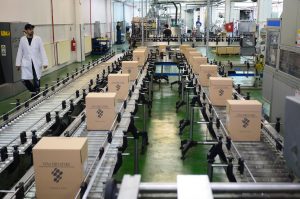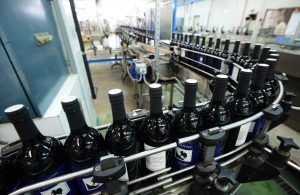Winery and Agricultural Cooperative Dingač emerges from bankruptcy as a cooperative that can successfully operate and with a capacity of 5 million liters. It has opportunities for business and technical cooperation that existed until the crisis, for example with Badel 1862.”We supported the bankruptcy plan, because we believe in that wine area,” said CEO of Badela 1862 Ivo Markotić.

Photo: Marko Prpić/PIXSELL
As Badel had previously voted against Dingać’s bankruptcy plan, and now he has accepted it, I see the contours of the intention to cooperate, but what it will be, this will be seen, says bankruptcy manager PZ Dingac Ante Mrkonjić. After the plan has been approved and confirmed by the court, it follows a quick end to bankruptcy, in which Dingač has been rescued and continues business in less than a year and a half with the help of the creditor – the winemakers and the state.
“If we have to cooperate with Dingac, we have not decided, but I would like to point out that we are cooperating with Peljesac wine-growers not only through the purchase where the annual plan is about one million liters, but we also provide our professional assistance,” he says. At the beginning of February bankruptcy can be concluded, and in the case of an appeal it will be extended until Easter. The manager will then convene a meeting, where the co-operatives should select the supervisory board, who will announce the tender for the manager. The bankruptcy plan is adjusted to the VTS decision, which means that the dissimilar creditors will be separately settled – for the remainder of the HPB’s claims about HRK 3.4m and the SPV for the reparation of about HRK 300k, from the sale of the wine stock.

With around 880,000 liters of unleaded, shopping centers owe them 2.7 million kuna, more than a million kuna is the value of the unsold goods, and the debtor in the account has 700,000 kuna. Workers will be settled in full at the latest by 31 December at a one time. After write off, 10% of the government’s equity will be 7.3 ml. kn with interest (4.5%) will be paid in 4 years with a 1-year start and the first installment will expire on 31 January 2019.
Of the 324 creditors of the second highest payment order, 3/4 is a cooperative who will eat 50%, in 72 meals starting on January 31, 2019. Only one landlord voted against, the manager notes that in the pre-crisis, as well as in bankruptcy, they have not written off either 1% interest, let alone a share of the principal. Staff members say, satisfied, and trust returns, so the redeemed grapes are paid immediately in cash.
According to him, in the perspective, and by reducing the stock of wine from which the creditors are settled, there will be room for ever greater grape harvest. According to the financial plan this means about 310 thousand liters of wine a year, ie about 450 thousand tons of grapes, and for several years and more than half a million tons of grapes. Collaboration with Spar, Tommy, Studenci and Consumo has been achieved, which is paying everything in time and, say, the most recent. “We have not been in Lidla for which we are very interested, and it is also likely to be export-oriented. For example, our exporters in China contacted us, but we could not react because we are an obstacle – bankruptcy,” says the manager.